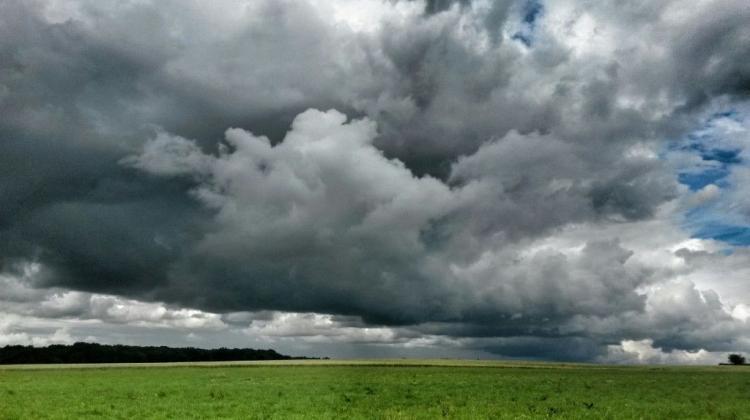Severe frosts and heavy rains in Europe? The Malay Archipelago may be the key
 Photo: Fotolia
Photo: Fotolia
The occurrence of severe frosts in winter and heavy rains in the summer in Central and Eastern Europe can be influenced by the weather in the tropics, especially the Malay Archipelago. Scientists want to see how strong is the link between the Malay Archipelago climate and extreme weather phenomena in Europe. One of the results of their work could be more accurate long-term weather forecasts.
The weather outside the window is nothing like the TV forecast again? We would like to know what the weather will be like next month in the Tatras, but again we lack reliable long-term forecast? What can make our lives difficult, is not a surprise for researchers. Forecasting weather is a very complex process that takes into account many climatic variables. It resembles a system of connected vessels in which a change in fluid level in one vessel affects what happens in another vessel. In Poland and neighbouring countries, the predictability of extreme phenomena may, for example, be affected by the weather if the distant Malay Archipelago.
Why would the Malay Archipelago of all places shape the weather in our part of the world? "The Malay Archipelago drives global air circulation. It is one of the key places of this type on Earth. When we look at the average rainfall, it is heaviest is in that area. It tells us - physicists specialising in the atmosphere - that the greatest amount of water vapour condenses there. As a result of condensation, latent heat is released, which drives the atmospheric circulation. The Malay Archipelago is therefore the main source of energy for global circulation" - told PAP Dr. Dariusz Baranowski.
At the University of Warsaw he conducts research on the impact of the weather in the Malay Archipelago on the weather conditions in Central and Eastern Europe. "We are particularly interested in extreme phenomena such as strong winter frosts or heavy rainfall in the summer" he said.
According to the scientist, tropics - that is, low latitudes, as well as high latitudes (Arctic and Antarctica) are among the places with the most predictable weather. But even there the weather sometimes changes; this usually happens in the Malay Archipelago.
"We do not know what exactly happens there. Organized systems of storm clouds, called the Madden-Julian oscillation, moving along the equator, sometimes pass through Southeast Asia, including the Malay Archipelago, and sometimes stop there. Research shows, however, that when this system of storm clouds enters the Western Pacific, Western circulation is blocked In Europe more often than usual. In winter it means strong frosts and smog, for example. We do not quite understand the processes that shape the weather in that area" - described Dr. Baranowski.
The task of his team will be to find a way to predict whether this system of storm clouds will pass through the Malay Archipelago, and whether this information can be used for forecasting weather in mid-latitudes, especially in Central and Eastern Europe. Researchers will also check if the weather in the Malay Archipelago actually affects extreme weather events in our region.
Their work will be based on three elements. The first will be an analysis of existing satellite data and historical observation data. The second part is the data that the scientists will collect during an experiment scheduled for the winter of 2018/19. They will use four research stations arranged along the equator to measure such parameters as the water temperature or salinity and their changes during storms. The third element will be an analysis of existing and used models of weather and climate forecasts and an assessment of how they reflect the phenomena in the Malay Archipelago.
"As a result of this project we will be able to tell how that region of the world affects extreme cold in winter and extreme summer precipitation in our part of Europe. The next step will be to implement what we will find out. We hope that following the two-year project, the available satellite data for the Malay Archipelago will allow to determine the probability that the frosts in January will be stronger or weaker in Poland. We would like to be able to prepare such forecasts a month ahead" - explained Dr. Baranowski.
Dr. Dariusz Baranowski conducted his research on weather forecasting in the Malay Archipelago at the Jet Propulsion Laboratory, California Institute of Technology in the United States. Thanks to a grant in the Homing programme awarded to him by the Foundation for Polish Science, he has returned to Poland and will continue his research at the University of Warsaw. Researchers from countries including the United States and Great Britain also participate in the project.
PAP - Science and Scholarship in Poland, Ewelina Krajczyńska
ekr/ zan/ kap/
tr. RL
Przed dodaniem komentarza prosimy o zapoznanie z Regulaminem forum serwisu Nauka w Polsce.


















